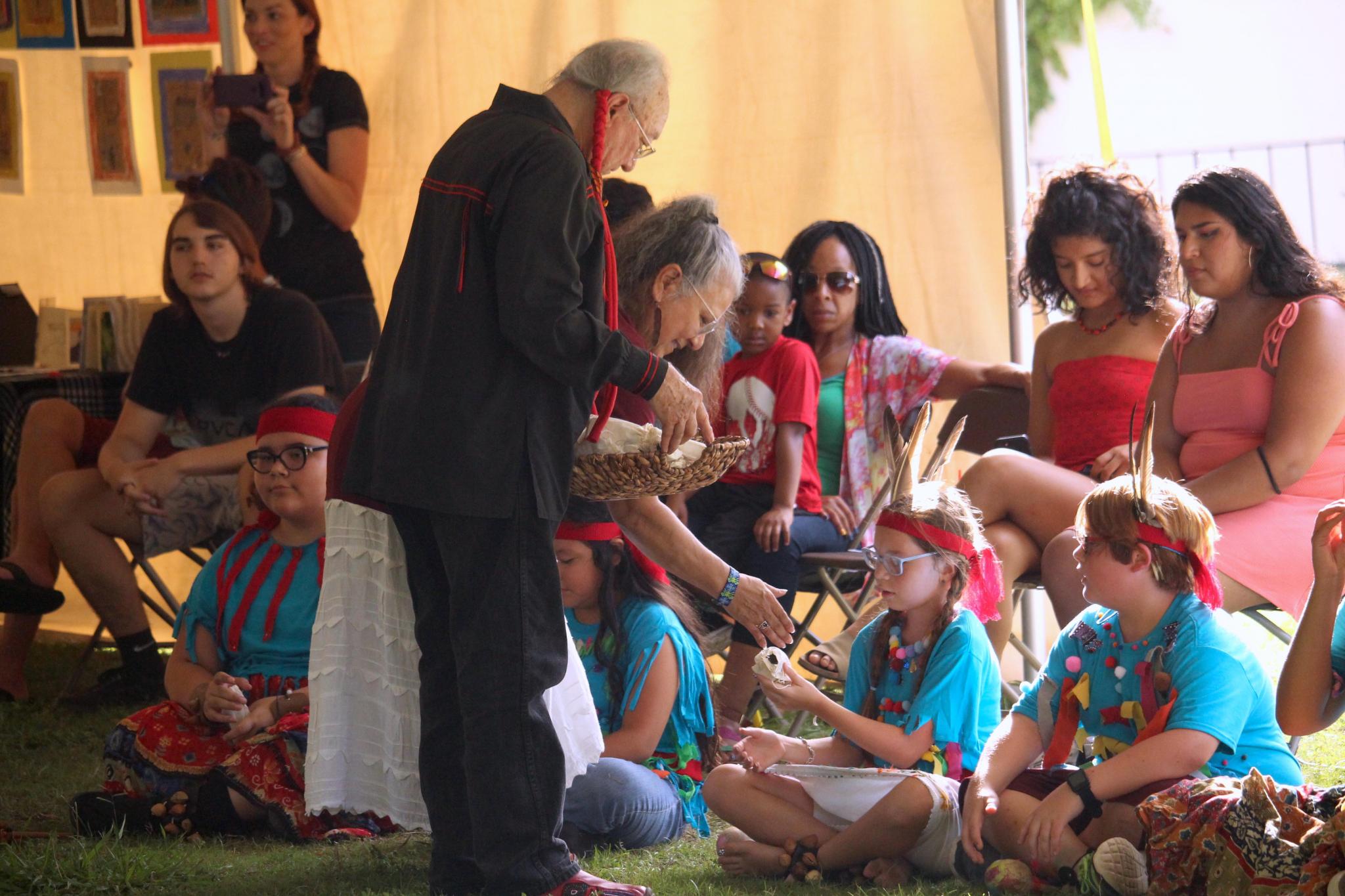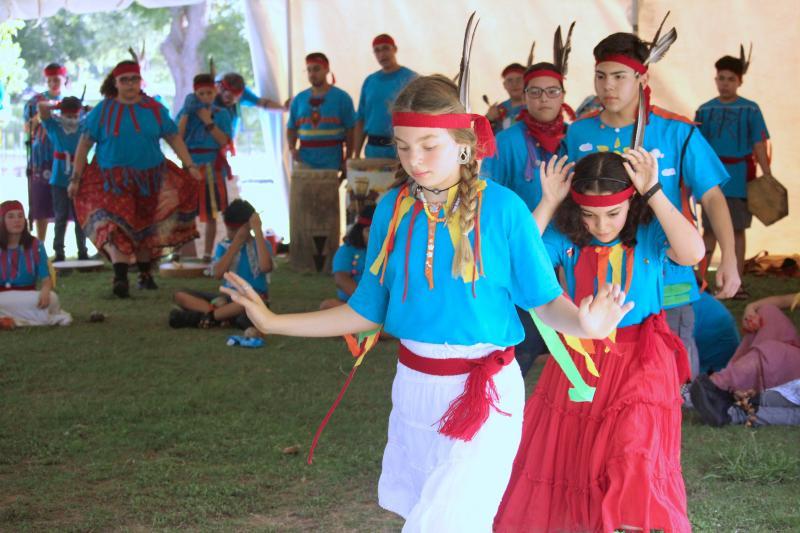
The Indigenous cultures Institute wrapped up their Indigenous Arts Summer Encounter camp last Friday with a ceremony. Above, Dr. Mario Garza and Maria Rocha give students water from the Sacred Springs in a bottle as a gift during the ceremony. Daily Record photos by Taylor Tribbey
ICI wraps up Indigenous Art Summer Camp
The Friday night ceremony on June 28 began with the resounding beat of the Aztec drum, heard throughout The Meadows Center for Water and the Environment. The outdoor tent was lined with family and friends who had come to witness their children perform an indigenous ceremony celebrating all the knowledge they had learned at the Indigenous Arts Summer Encounter, held from June 24-27 at Cuauhtemoc Hall.
Soon, a long line of 41 students entered, dressed in their handmade regalia, wearing feathers they had earned during the Encounter for service to their community. The students formed a circle in the middle of the tent and began a heartfelt and sacred performance depicting the Native American languages, dances, stories and songs they had learned during their week-long experience.
“It was such an emotional and awe-inspiring performance,” said Executive Director of the Indigenous Cultures Institute Maria Rocha. “They worked diligently throughout the week to learn the songs, dances, culture and arts of the indigenous people of this area of Texas.”
Texas and northern Mexico were the homeland of the Coahuiltecan bands of Native Americans who lived in the area for over 13,000 years. There were over 200 bands that were encountered when the Spaniards first invaded this part of the state in the 1500s. Much later, in the late 1700s-1800s, the Plains Native Americans such as the Comanche, Apache and other tribes arrived in Texas.
“We believe that most of the people who are identified as Hispanic and Latino whose families have lived in this area for many generations are very likely descendants of Coahuiltecan people,” said Dr. Mario Garza, the ICI’s board of elders chair. “So the children in our public schools who are labeled Hispanic and Latino are actually Native American, which is their true cultural identity stolen from them through the colonization process.”

Students Kaileena Kunz, Genevieve Schroeder-Arce, Maddox Garza and Dazzalyn Hernandez tell the Coahuiltecan creation story through dance.
The Institute promotes an indigenous pedagogy, The Xinachtli Project, based on the premise that restoring the Native American identity to Hispanic/Latino children will provide a foundation of pride and belonging upon which to build successful and fulfilling lives. Children learn that their Native ancestors were innovative and ingenious people who developed the concept of zero, charted the stars, discovered chemical electricity, built pyramids and multiple-stories housing, created farming innovations such as aqua-and terrace-farming and many other accomplishments.
“Learning this information through the powerful vehicle of the arts, inspires the children to be responsible to their community, respect the elders and others around them, and take care of Mother Earth,” Rocha said. “And the interns and instructors that we hire are role models who are acquiring their education, working on their Masters and Doctorate degrees and are Native people like the children. So the students feel that they too can go to college and be successful.”
The camp is open to children of all backgrounds who are students at the San Marcos Consolidated ISD. The Encounter is made possible from funding from the San Marcos Arts Commission, Becky Tomblin, Texas Commission on the Arts, Mitotiliztli Yaoyollohtli Dance Company, Hays County Commissioner Pct. 1 Debbie Gonzales Ingalsbe, San Marcos Unitarian Universalist Fellowship, San Marcos Lions Club, Hays County, AMVETS, Mano Amiga, Hays County Animal Clinic, SMCISD, University of Texas at Austin’s Native American and Indigenous Studies and UTeach Fine Arts Department.
The Encounter is held each summer at the end of June. For more information on this and other Indigenous culture Institute programs, visit the ICI's website.











